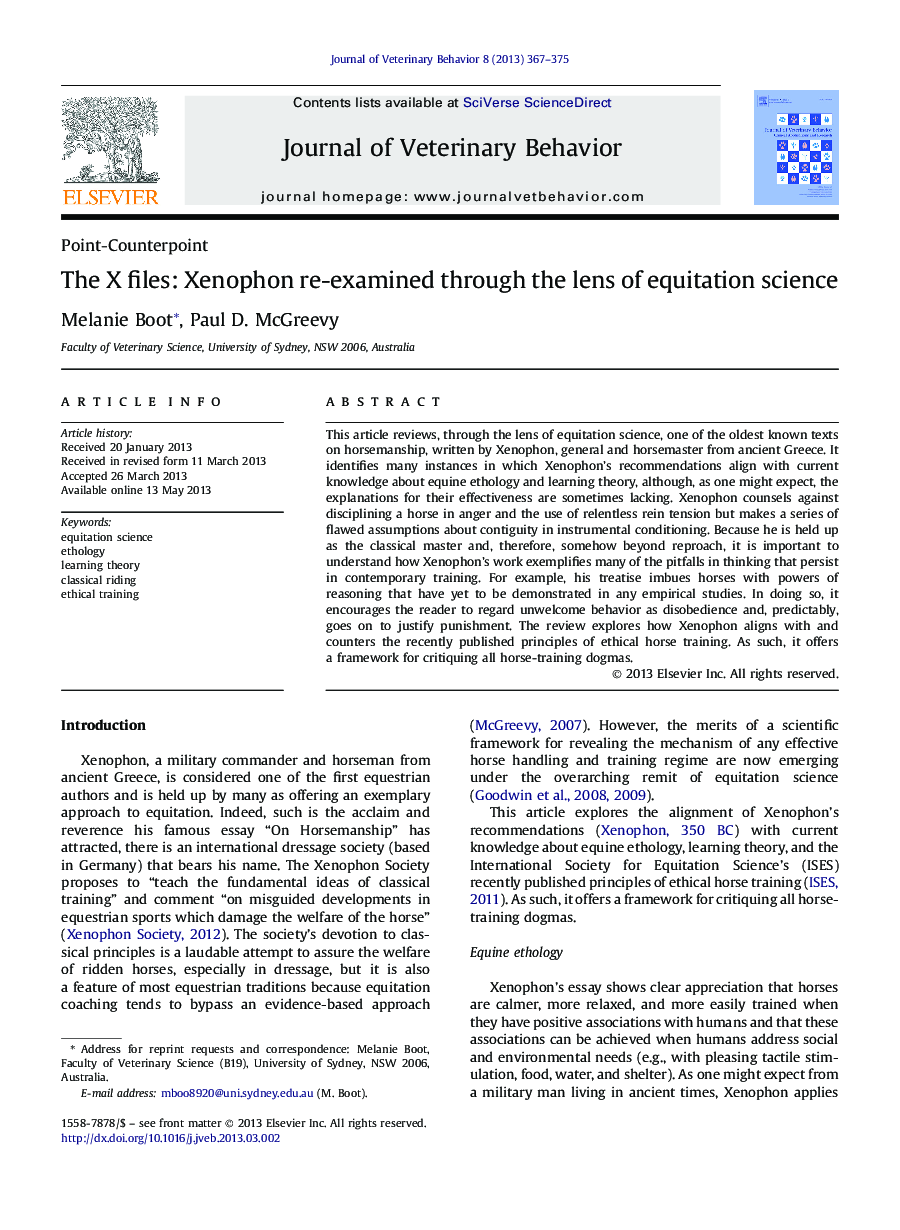| Article ID | Journal | Published Year | Pages | File Type |
|---|---|---|---|---|
| 2399264 | Journal of Veterinary Behavior: Clinical Applications and Research | 2013 | 9 Pages |
This article reviews, through the lens of equitation science, one of the oldest known texts on horsemanship, written by Xenophon, general and horsemaster from ancient Greece. It identifies many instances in which Xenophon's recommendations align with current knowledge about equine ethology and learning theory, although, as one might expect, the explanations for their effectiveness are sometimes lacking. Xenophon counsels against disciplining a horse in anger and the use of relentless rein tension but makes a series of flawed assumptions about contiguity in instrumental conditioning. Because he is held up as the classical master and, therefore, somehow beyond reproach, it is important to understand how Xenophon's work exemplifies many of the pitfalls in thinking that persist in contemporary training. For example, his treatise imbues horses with powers of reasoning that have yet to be demonstrated in any empirical studies. In doing so, it encourages the reader to regard unwelcome behavior as disobedience and, predictably, goes on to justify punishment. The review explores how Xenophon aligns with and counters the recently published principles of ethical horse training. As such, it offers a framework for critiquing all horse-training dogmas.
